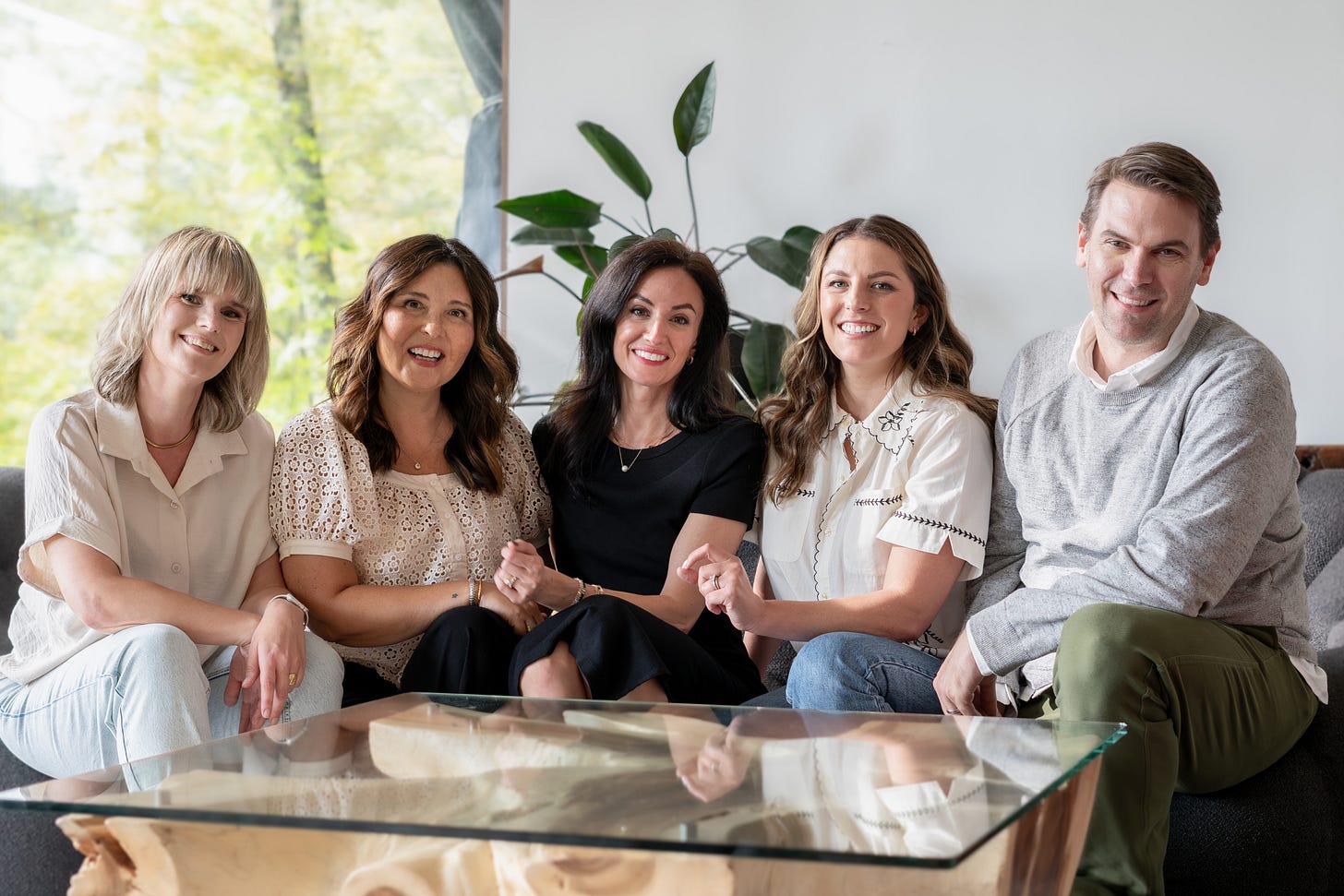What Rebranding Taught Us About Collaboration
Inside the process, the pressure, and the principles we bring to leaders and teams we support.
Meet Collabic
We’re five former Meta colleagues who spent years on the Leadership Development team. That work was a front-row seat to how teams succeed and how they fall apart. It taught us not just frameworks, but a way of working that is real, energizing, and built to last.
When we left Meta, we didn’t just want to keep working together. We wanted to bring that same kind of impact to leaders and teams around the world. That shared intention became Collabic: a boutique consultancy helping companies lead better, move faster, and make work actually work.
Why We Rebranded
When we launched, we were in MVP (minimum viable product) mode. We said yes to a lot. We tested, iterated, and evolved quickly. Our first year helped us get clear on what we’re great at, and who we’re here to serve.
But our brand didn’t yet reflect what we had created. It undersold our value. We knew it was time to tell our story in a way that resonated with who we had become.
So we rebranded. And not just the surface stuff, fonts and colors, but the deeper layers: our purpose, values, and our reason for being.
Why Scout Lab
As we set out on this undertaking, we needed a creative partner that not only understood our vision, but could bring our brand to life. We spoke to a number of potential partners and ultimately chose Scout Lab. We found that beyond their creative capability, their mission: Building brands that push humanity forward, aligned with ours. They brought more than creative polish. They brought intention to creativity and structure to the process.
They didn’t flinch when things got complex. They stayed in it with us. They asked hard questions, held space for real debate, and helped us stretch beyond what felt comfortable.
From Scout Lab’s Perspective: Why We Partnered with Collabic
Rebranding a company with five co-founders is no small task. Decision-making at that level can be complex and emotional for many. What immediately stood out was their clarity of intention, their commitment to building with purpose, and their deep respect for the collaborative process. It wasn’t just in their name, it was their way of working.
When perspectives collided, they didn’t flinch, they delegated. We watched this seasoned team of leaders put their own principles to the test, and they passed. The result wasn’t just a new brand identity we were all proud of, it was a blueprint for how to move through big, bold decisions with clarity and respect for your partners.
Creative collaboration sounds great until you have to do it.
For founders, brand identity work is high-stakes and deeply personal. Everyone has an opinion. Everyone wants to feel seen. And when you’re building something that’s meant to reflect not just what you do, but who you are, the work gets real.
We had to navigate strong perspectives, deep values, and a shared desire to get it right. It took longer than we planned. We hit roadblocks and were guided through the winding path.
It wasn’t easy. But it was honest. It shaped how we lead, and how we help others lead, too.
Here’s what helped us move forward, and what we now help other teams practice under pressure.
Clarity Over Consensus
When ownership is fuzzy, everything slows down.
In our first feedback round, all five of us chimed in, thoughtfully, passionately, and thoroughly. However, without clear decision rights, it created confusion. The Scout Lab team was flooded, and following the process was not possible with this many voices.
Moving past this roadblock required naming the real issue: we hadn’t aligned on who decides. So we re-contracted. Everyone had a voice, but one person had the call. It wasn’t about perfect agreement, it was about trusting one another and having a unified voice.
Ask your team: Are we clear on who has final decision rights?
Defer to Expertise
When someone has the experience and the energy, let them lead.
Kara had deep brand experience and a clear creative vision. She cared about the work, and she had the expertise to lead it. So she did. The rest of us offered input, then stepped back.
Ask your team:
Do we know who should lead this specific part of a project, and are we letting them?
Re-contract When Needed
Timelines matter, but so does doing the work well.
We planned to launch in April. It’s July. That shift was intentional. We paused. We reflected. We adjusted. Good work takes time, so we acknowledged this and were realistic about the time this would take.
Ask your team:
Is our plan still serving the work, or is it time to reset?
Check the Process, Not Just Progress
It’s not just what you’re doing; it’s how you’re working.
At key points, we asked: is the way we’re working still working? That question helped us catch misalignment early, before it grew into something harder to fix.
Ask your team:
What’s helping us move, and what’s slowing us down?
A Final Invitation
Your brand isn’t just what you say. It’s how you decide. How you collaborate. How you build, especially under pressure.
We’re proud of where we landed, and even prouder of how we got there.
👉 Come see the new Collabic.
👉 Check out Scout Lab!
👉 Subscribe to our Substack!




